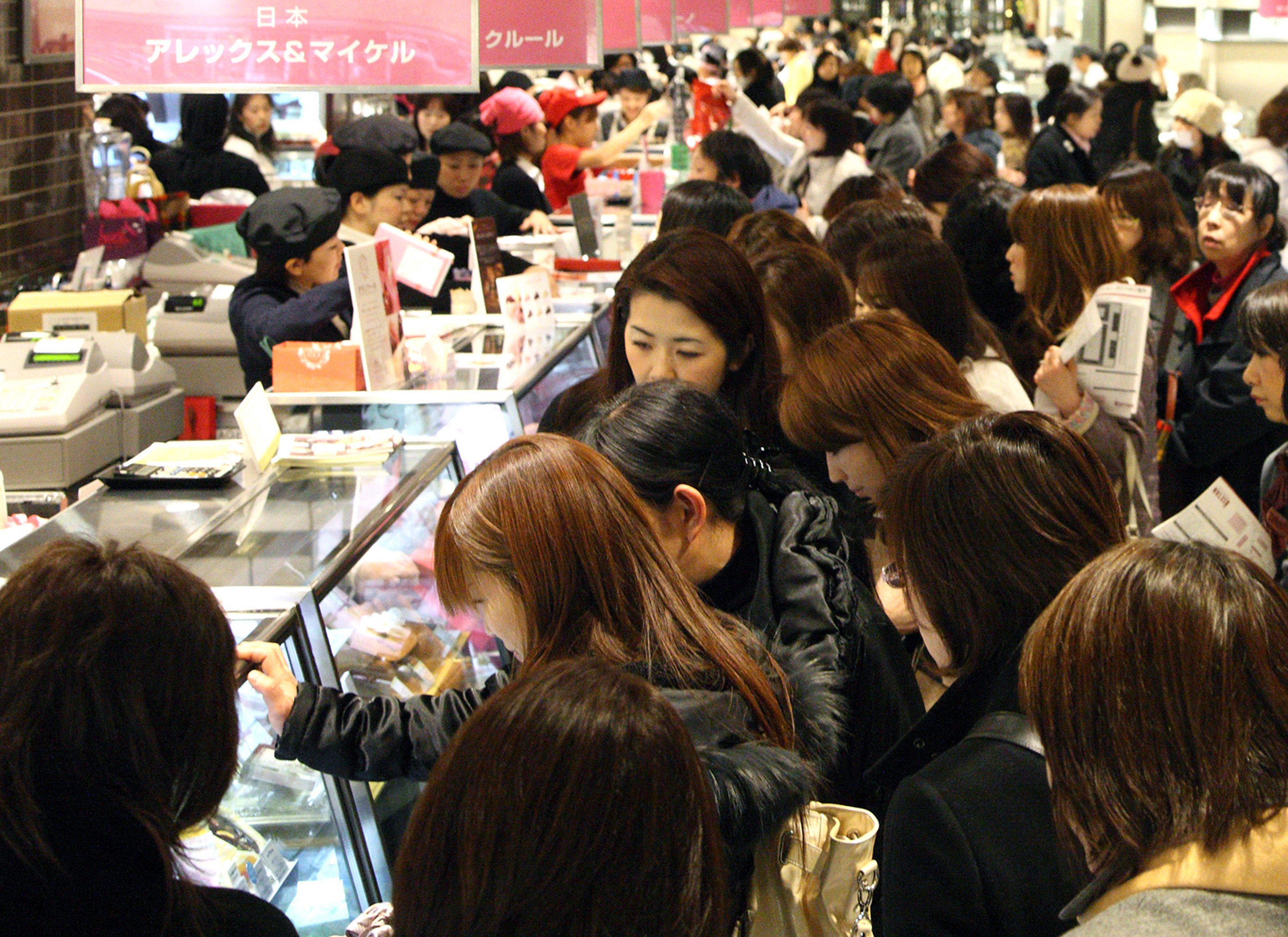They say February is the month of love but take it from one who knows — the Japanese have become increasingly suspicious of the whole Barentain (バレンタイン, Valentine's) thing as just another marketing ploy to open womens' purses. And what with the consumption tax kicking in, chances are we'll see far less of the giri-choko (義理チョコ, obligatory chocolates gift) phenomenon occurring in the workplace from now on. As my friend Kiyomi always likes to say: "Giri-choko kau okane attara onsen ni ikuwa" (「義理チョコ買うお金あったら温泉に行くわ」"If I had money to spend on obligatory chocolates, I'd rather splurge on an onsen"). After all, Japanese women have to take care of themselves — no one else is going to.
"Barentain ni kokuhaku nante arienai" (「バレンタインに告白なんてありえない」 "confessing to love on Valentine's Day is just not going to happen") says 42-year-old Fumika, whose last big Valentine's date happened back in 2008. On that day Fumika had taken fate into her hands and bought a tie from Bulgari, plus the oyakusoku (お約束, promised) box of truffles from Godiva and presented them to the man of her dreams. They dated a total of twice before this dreamboat came out with the dreaded words: "Ore, jitsuwa sukina hitoga irukara" (「俺、実は好きな人がいるから」 "To be honest, I'm in love with someone else").
After that who can blame the poor woman for becoming a ren'ai hikikomori (恋愛ひきこもり, love recluse)? Since then, Fumika has made a few attempts to sign up at kekkon sōdanjyo (結婚相談所, matchmaking agencies) but gave up in disgust. These days, she's scouring the Internet for different scenarios on conducting life as an ohitorisama (おひとりさま, honorable solitary person) and finds it much more engrossing than any matchmaking app. Fumika's plans include the modish share-house cooperative for over 40s singles, pet rentals, shared vacation homes and the increasingly trendy shūkatsu (終活, preparing for one's demise).


















With your current subscription plan you can comment on stories. However, before writing your first comment, please create a display name in the Profile section of your subscriber account page.